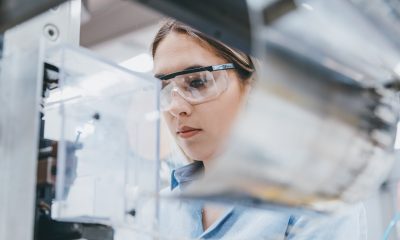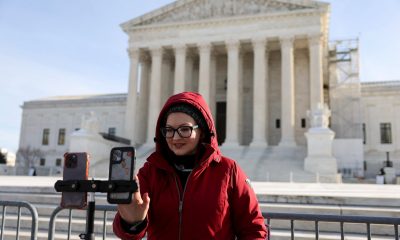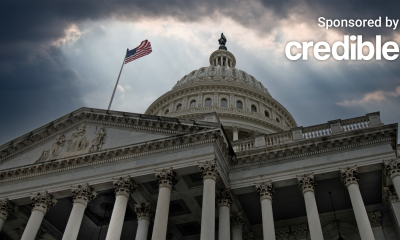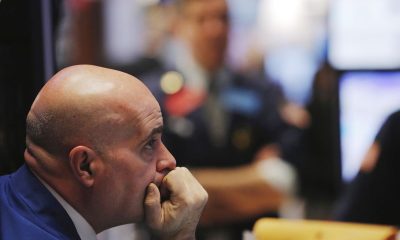Investing
Explainer – What is the ‘Bridgetown Initiative’ asking for at Paris summit?

© Reuters. An aerial view shows the Seine River and the skyline of La Defense financial and business district near Paris, France, June 19, 2023. REUTERS/Stephanie Lecocq
2/2
PARIS (Reuters) – President Macron hosts a summit in Paris starting Thursday to discuss reform of the world’s multilateral finance institutions in the face of climate change and other development challenges.
A key topic of discussion will be suggestions from a groupof developing countries, led by Barbados, dubbed the ‘BridgetownInitiative’.
The key demands of the Bridgetown Initiative are:
LIQUIDITY SUPPORT
U.N. member states should fast-track the transfer of $100billion in so-called ‘Special Drawing Rights’, a monetaryreserve currency, to programmes that support climate resilienceand subsidise lending to low-income countries.
The International Monetary Fund should suspend surcharges – additional interest payments imposed on heavily indebted borrowing countries – for two to three years.
It should restore “enhanced access limits” establishedduring the COVID pandemic for two emergency financial supportinstruments, the Rapid Credit Facility (RCF) and Rapid FinancingInstruments.
DEBT SUSTAINABILITY
G20 creditor countries should redesign their CommonFramework for restructuring the debt of poor countries indefault, notably by speeding up debt relief talks and allowingmiddle-income countries to access it.
The IMF should encourage the restructuring of unsustainabledebt in a way that is consistent across countries, and changethe way it analyses the debt to incentivise investments thatcreate future savings, such as those for climate adaptation.
Public and private creditors should include disaster clausesin lending deals to allow countries to divert debt payments todisaster relief, and refinance high-interest and short-term debtwith credit guarantees and longer maturities.
U.N. member states should agree to raise $100 billion a yearfor a fund to help pay for the climate-related loss and damagesuffered by developing countries.
PRIVATE CAPITAL
The IMF and multilateral development banks should offer $100billion a year in currency risk guarantees to drive privatesector investment in projects that would help developingcountries make the transition to a low-carbon economy.
They should also expand their support to countries to help them create a pipeline of investable projects, and make greater use of blended finance and other structures where public lenders take on more project risk.
DEVELOPMENT LENDING
The G20 and other shareholders of the World Bank, IMF anddevelopment institutions should fully implement the 2022recommendations of a panel of experts aimed at boosting lendingby the multilateral development banks.
They should commit an extra $100 billion a year in freshcapital to the various institutions and move the Special DrawingRights capital to multilateral development banks, starting withthe African Development Bank by September 2023.
They should increase the leverage of the World Bank’s International Development Association, which provides concessional finance, fully fund its emergency support facility to $6 billion by end-2023, and scale up the IDA’s funding to $279 billion.
They should raise the access limits to concessional finance through the Poverty Reduction and Growth Trust and the Resilience & Sustainability Trust.
They should assess funding eligibility in light of a country’s vulnerability and provide low-cost, 50-year loans to help them invest in areas including climate resilience, water security, pandemic preparedness and access to renewable energy.
They should simplify and harmonise the way countries can apply to access loans across the world. The international financial institutions should also finance development plans that help protect shared resources.
TRADING
Groups such as the World Trade Organisation and other majortrading partners should work with governments to strengthensupply chains to make them more resilient, ensure they benefitcountries that produce raw materials and protect the vulnerable.
GOVERNANCE
The governmental shareholders of International FinancialInstitutions should change the way they are structured and run to make them more “inclusive and equitable”.
Read the full article here

-

 Personal Finance7 days ago
Personal Finance7 days agoIf you are 60 years old, new 401(k) rules could save you money
-
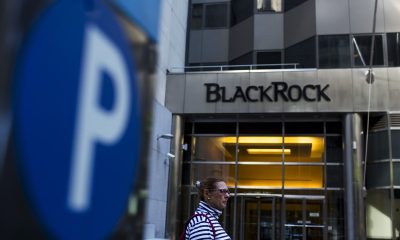
 Investing6 days ago
Investing6 days agoBank regulator gives BlackRock new deadline on bank stakes, Bloomberg reports By Reuters
-
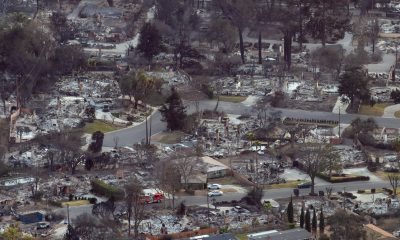
 Side Hustles5 days ago
Side Hustles5 days agoLA Rental Prices Skyrocketing Despite Price Gouging Laws
-
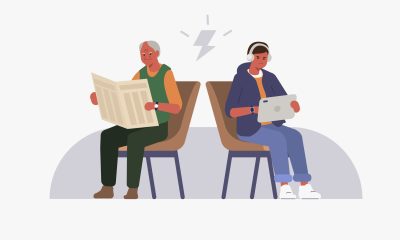
 Side Hustles5 days ago
Side Hustles5 days agoHow to Craft Marketing Campaigns That Reach Multiple Generations
-

 Side Hustles3 days ago
Side Hustles3 days agoWhat to Do If TikTok is Banned — How to Protect Your Brand
-

 Side Hustles7 days ago
Side Hustles7 days agoFileJump Offers 2TB of Cloud Storage for $70—With No Strings Attached
-

 Make Money7 days ago
Make Money7 days ago10 Easy Ways to Earn Cash Right Now
-

 Side Hustles6 days ago
Side Hustles6 days agoFormer Zillow Execs Target $1.3T Market

